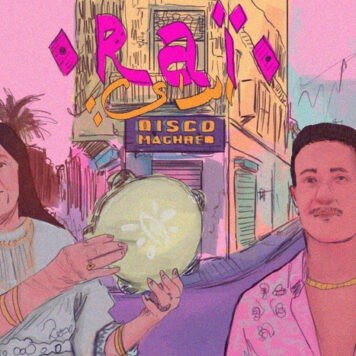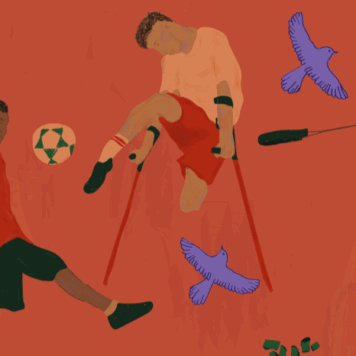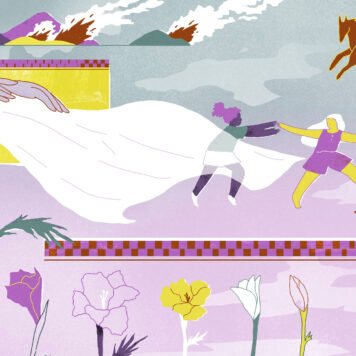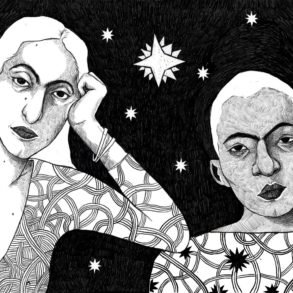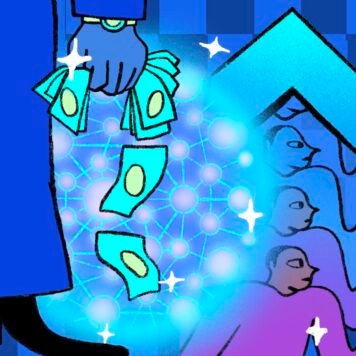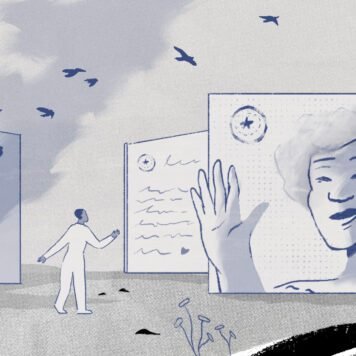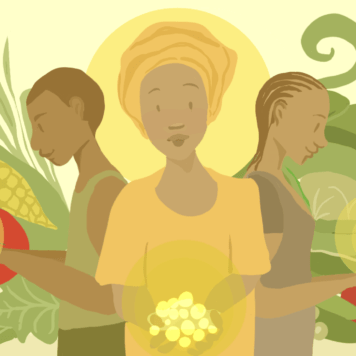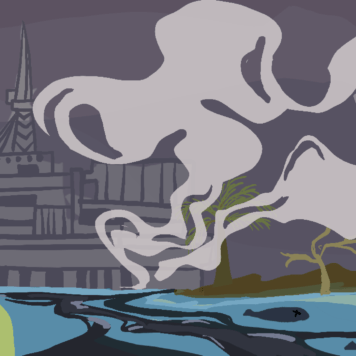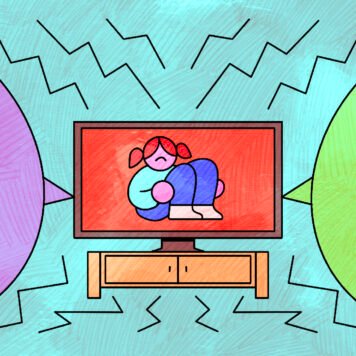On 15th March 2019, a terrorist attack took place in Christchurch, New Zealand. shado has collected a range of different responses across the world to illuminate the global nature of the problems of white supremacy, racism and hostile environments which fuel attitudes towards immigration, and to demonstrate the ripple effects that the Christchurch tragedy has had across the world.
1. Habeeba Yasin, USA
Recently, within the past few years there has been terrorist attacks on people of faith in places of worship (masjid, churches, synagogues). This tension is not without the ill effects of white supremacy, Western colonisation and indoctrination. During the civil rights era in the United States, Black people were attacked in their places of worship by white supremacists who condemned the existence of Black people. Today, that message remains, as white supremacy continues in our era and is not denounced from our top administration (See article by Huffington Post about how Singer John Legend says Donald Trump winks at white supremacy). This recent attack in New Zealand was a crime against humanity much like the Charleston church attack. My question is when will the United States actively address the issues white supremacy creates?
My heart goes out to the families of the victims. Inna lillahi wa inna ilayhi raji’un (We belong to Allah and to Allah we shall return).
During such high emotional times, I ask that you take some time to care for yourselves and seek out emotional support if need be. Your mental health is important.
2. Eva Wong, Singapore
As an East Asian living in Singapore (I am a Londoner), I am constantly reminded of the power that being ethnically Chinese brings in a multi-cultural society like that of Singapore’s. Why this power? Singapore is a predominantly ethnic Chinese nation, compared to her neighbour Malaysia and Indonesia, with a largely Malay population, and who are predominantly Muslims. But I don’t feel this power because in Singapore, although racism does surface its ugly head once in a while, I feel equal to everyone else: Hindus, Muslims, Christians, due to Singapore’s religious tolerance and its intolerance for racial divide. Muslims are respected in this island-nation and indeed in the region – Southeast Asia – and have always been since the arrival of Islam which was brought by Arab traders since the 7th century. If there was room for white supremacy in this part of the world, it was only so during colonisation. Since the region’s various independence from as early as the 19th century, with New Zealand’s, attained in various forms since 1907, when it was declared a Dominion within the Empire, white supremacy has been slowly and surely buried along with colonization and its multiple ills. But, there are some people who will not let go.
As the world globalises further and as immigration stretches farther, and as “other” people grow in numbers, a new type of fear is spreading and settling – the fear of the White Man losing his power. This eventually resulted in the massacre at Christchurch recently. New Zealand has its own set of problems — ethnically Caucasian citizens who are there today, left behind by a legacy of colonialism, who are grappling with their identities and control of a land that was never theirs indigenously, as governmental policies allow for more immigration due to the need to increase the workforce. New Zealand also has to grapple with a mentality of supremacy that is not necessarily theirs but one that was imported from a neighbouring country. This is not to let New Zealand off the hook because there are those amongst them who feel and act superior – those who will not let go. Even though New Zealand is less diverse compared to its neighbour, Australia, it is ready to embrace diversity and has been so since the country opened its doors to new citizens from the late 80s. New immigrants and embracing differences will continue to grow under Prime Minister, Jacinda Ardern, who is going to change mindsets rooted in xenophobia. She is what New Zealand needs to confront white supremacy, negative attitudes towards immigration and hostility towards those who are different. This image by New Zealander photographer, Kirk Hargreaves, circulated the world, and one that touched many hearts, including mine. It is an image of hope as the grief on her face echoes the despair and heartache flowing through the blood of a community that calls Christchurch home. Here, Ardern dons a hijab or head scarf, symbolising her stance: she is united with her people, the Muslims of Christchurch.
3. Safiya Bashir, London
There are many things that could have been taken away from the Christchurch terror attacks. White supremacy is on the rise, Islamophobic attacks are reaching an all time high, Muslims around the world are feeling more threatened than ever. But what was the main take home message forced down our throats from mainstream media? The world loves a woman in a headscarf. But not just any woman. More specifically, we love a white, non-Muslim woman in a headscarf. Reading the headlines over the past few weeks, New Zealand’s prime minister Jacinda Arden has been hailed and praised from all angles and a reminder that “Real leaders do exist”. Yes, it is a refreshing to remember that the leader of a country can do a good job when the current bar for leadership is on the floor. However, the shift in conversation moving from the horrors that have occurred and the victims of attack to the appraisal of a women doing her job, is an uncomfortable one. We have put Jacinda at the very centre of a conversation, which should not be about her. In Jacinda’s own words, who said in response to calls for her to receive a Nobel Peace Prize, “That chat doesn’t sit comfortably with me, i’m doing my job and just being a human along the way”.
4. Debasmita Dasgupta, India
Those who want to paint this world with one colour, are completely fuddled. However, you can’t respond to such stupidity with more stupidity. Like Rumi said, let us not raise our voice but raise our words, so let’s use solidarity as a symbol to convey multiculturalism in the wake of a hate crime. And what happened in Christchurch can be prevented in the future if we all stand together for a global fight against racism.
5. Maria Zahia, London
The white supremacist terrorist espoused anti-immigrant, anti-Muslim sentiments, calling for deportations and genocide of European Muslims who he called the ‘invaders’ His words are shocking and hurtful, however, they are not new sentiments. Neither Tarrant’s ideas; nor his phrases; nor his targets are strangers to a mainstream media that has, for decades, furiously stoked up animosity towards, and rejection of, immigrants, people of colour and Muslims. The terrorist did not operate in a bubble; he is part of a coordinated attack on Muslims and immigrants which seeks to divide communities, and scapegoat particular groups. This is easily evidenced by Tarrant’s own words. On why he attacked Muslims, he wrote, ‘They are the most despised group of invaders in the West, attacking them receives the greatest level of support.’ And he’s not wrong. Right-wing pundits, politicians and journalists have built whole platforms on the back of the stigmatisation, and even the dehumanisation of Muslims. Recently, the number of these has only grown, as parties embracing xenophobic and bigoted positions have gained traction across Europe. To add insult to injury, the media outlets that are generally relied on to be critical of their subjects, as well as taking a centred neutral ground, have continuously platformed far-right figures, while attacking the Muslim community for their supposed part in their own victimisation. The most shocking instance of this being BBC Newsnight’s coverage of Christchurch. (https://barficulture.tv/media/494)
6. Ruby De Rover, Australia
George Resch, the force behind @tanksgoodnews on instagram, posted a video earlier this week, saying that at times such as these he has: learned to wait and watch for the silver lining… I’ve learnt that the darker the tragedy, the brighter the silver lining looks in comparison, and the Christchurch shooting is no exception to that”.
Resch is right. And we can all be grateful that the silver linings are shining so brightly. An attack that was driven by despair and hatred, intending to spread fear and animosity has instead done the opposite, engendering solidarity, love and positive change in New Zealand, and the wider world.
Under the guidance of the formidable Jacinda Ardern, New Zealand has taken swift and decisive legislative action to further tighten already strict gun control laws.
In an act of solidarity with the Muslim community, The New Zealand Jewish community decided to shut its synagogues on Shabbat for the first time ever.
Groups of NZ bikers have pledged to stand guard outside mosques in the country for the first Friday prayers since the massacre.
The NZ government has confirmed it will cover the funeral costs for all 50 victims.
In less than a week almost $10 million has been raised for the victims and their families.
I am in awe of people like this. Who channel their anger and pain towards action and change. Who, even in times of such tragedy, have the ability to look up and forward. Who refuse to let their sorrow overwhelm them. It seems that at the current time they bear an almost impossible burden. We can’t let them do it alone.
7. Hannaa Ibrahim, Egypt
I am Hanaa, pharmacist and mother to two girls, married to an assistant lecturer in Egypt. I am Egyptian and proud that I belong to Egypt and its friendly people, Christians and Muslims. I am Muslim with hijab and also proud of that as I chose to wear it and feel it is a crown on my head. It makes me feel that I am a diamond, so I choose the best colours to fit with my clothes, and feel the beauty when I wear it.
I am sad and cry when Christians are killed in church and stand side by side in the street to call No to Terrorism. I was sad deeply and cry a lot when the people were killed in a mosque in Egypt and in the mosque in New Zealand. I am sad and cry when someone sees a Muslim as a terrorist and when someone looks at me with hate because of my hijab.
Subscribe to shado's weekly newsletter
Exclusive event news, job and creative opportunities, first access to tickets and – just in case you missed them – our picks of the week, from inside shado and out.

I want to tell all people that this terrorism is the black smoke which comes to damage all the love between us as humans and has no religion – a devil that wants to reach his aim by passing on our killed bodies and his flag is hate, kill and destruction. We have to be one hand for our kids to breathe air full of safe, love and warmth.
Suzanne Blumhardt, New Zealand
When I switched on the radio in the middle of the afternoon the first voice I heard was not the usual afternoon programme host but a news announcer saying:
“Police advise everyone should stay away from mosques throughout the country this afternoon.”
My first thought was that this had to be to do with somewhere overseas – it could not refer to New Zealand. Over the rest of that dark day we gradually heard the full extent of what had happened in Christchurch on a calm autumn afternoon, when a single gunman with a perverted ideology shot innocent people at prayer. At first we understood that many were injured, and later, with horror, that as many as 40 may have been killed. Often in disasters the early numbers of deaths are higher than the final toll, but here the death toll just kept rising. In all 50 people, including children, died and as many again were injured.
New Zealand is a small and usually peaceful country. Our people come from many parts of the world, but there is still a strong sense of community here. I believe nearly everyone that evening would have been watching the same images on their television screens. When I turned to international news channels, I realised that the terrible story also dominated the news around the world. My own reaction was a feeling of numbness, of unreality. It is still hard to comprehend what happened or why it happened.
I am proud of the reaction of the people of New Zealand, and of our political leaders, to the attack. I am especially proud of the leadership of our young Prime Minister whose words and deeds inspired us all. The image of her in a headscarf looking drawn and compassionate summed up the feelings of us all. Her words “We are one” have echoed around the world. Over the days since the shootings, New Zealanders of all ages and races have reacted as one to deplore the massacre and express solidarity with our Muslim compatriots. Vigils and memorials have been held all over the country, some huge and some small and personal such as spontaneous gatherings on beaches, hundreds of thousands of flowers have been laid at makeshift sites, millions of dollars have been raised to help the survivors, and there have been many random acts of kindness. Every event I have attended since the shootings, no matter what its purpose, has included recognition of the event: words of support from main speakers or minutes of silence at concerts. It is true to say that the whole country is in mourning.
The local Muslim community, made up of people from so many diverse countries, have been generous in their comments about life in New Zealand. But this did not stifle conversations on incidents of racism here. We know we are far from perfect. There have been odd incidents of anti-Islamic behaviour since the shootings, but I have been encouraged by the reaction to these. For example, when a bus driver shut the door on a Muslin woman three school girls stayed with her until the next bus arrived and then went to the bus depot to report the driver to his superiors.
The government was quick to introduce legislation outlawing military-style semi-automatics and assault rifles and modifications to them. All the major parties in parliament are supporting this legislation which is welcomed by the vast majority of the population. Attention is also being paid to control of hate speech, and questions are being put to multinational technology companies about the role of social media in acts of terrorism.
Now the challenge is to maintain the sense of togetherness we have experienced these last two and a half weeks, and to make New Zealand a better place to live in the years ahead.
8. Kate Lebow, London
I felt foolish crouching by the self-checkout at Sainsbury’s to write the cards, and self-conscious carrying the flowers uphill on Salusbury Road, fighting a strong wind that pulled at the plastic wrapping on the bouquets. I passed a woman in a head-scarf as I rounded the corner on Chevening, and one of the cards flew out of the bundle. I bent over to pick it up. I wondered if she saw and what she thought. Still fighting the wind, I found what looked like an entrance to the Al-Khoei Foundation at the side of a building. There was no buzzer, but to my surprise, the door was unlocked. I pushed it open.
That open door keeps coming back to me as I think about last Friday, the 15th March. Earlier that day, fifty people had been killed at prayer in New Zealand. One of them, Haji-Daoud Nabi, had opened the door to Al Noor mosque saying, ‘Hello, brother’ to the shooter.
I was bringing flowers and condolences to local Muslim institutions on behalf the Willesden Minyan-Shir Hayim social action team. We remembered how members of the Al-Husseini Association had come to our community meeting following the Pittsburgh shootings and how much that had meant to us. Yet I was nervous as I approached these offices, schools, and mosque. How would I be received? I expected scrutiny, security, suspicion. I had passed these buildings a million times, but they had assumed a rather fortress-like appearance in my mind. Closed, not open.
The welcome I received on Friday proved that the biggest walls are those we erect in our heads. At the top of the stairs, I was greeted by a man who informed me that the Al-Khoei staff was out of the office. But he promised to pass along the bouquet, and he directed me to the adjoining school, where I delivered the next bunch of flowers to an office bustling with parents, children, and staff. There were sad smiles, gracious thanks, and quiet words: ‘We are all the same, all people’; ‘They will not win’.


